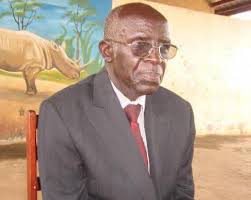The Lango Cultural Foundation has declared three days of mourning in honour of its former Prime Minister, Retired Colonel Tony Otoa, who passed away on Monday afternoon at his residence in Boke, Lira City East Division.
Col. Otoa, a revered cultural and military figure, served as the head of the Abwor clan (Awitong) and held the Prime Ministerial post within the Lango Cultural Foundation between 2011 and 2013. His leadership was during the tenure of Yosam Odur Ebii, then the cultural head of the Lango community.
The current LCF Prime Minister, Frederick Ogwal Oyee, released an official statement celebrating Otoa’s legacy. Oyee commended the late leader for uniting Lango both at home and abroad, saying his efforts were pivotal in shaping the region’s cultural and development agenda.
“Awitong Tony gave his all for the Lango people,” Oyee stated. “He tirelessly promoted unity and identity, drawing even those in the diaspora into efforts to grow Lango culturally and economically.”
Among his most celebrated contributions was the orchestration of the 2012 Lango Conference, a landmark event that set the stage for long-term regional transformation. According to Oyee, resolutions passed at that gathering continue to influence Lango’s development strategies today.
Veteran politician Joel Aliro Omara, who once served as Commerce Minister under the Obote II administration, paid tribute to Otoa as both a freedom fighter and political mentor. He credited Otoa with playing a key role in overthrowing the repressive regime of Idi Amin and for offering him valuable political guidance during his time as MP for Lira North.
“Tony was a voice of courage and conviction,” Omara reflected. “He was part of the brave group that returned in 1979 to restore order after Amin’s fall. His promotion to colonel was earned through commitment and sacrifice.”
Otoa’s military journey began as an Ammunition Technician in the Uganda National Liberation Army (UNLA), where he was essential in supporting Obote’s forces. After the fall of the UPC government, he transitioned into the Uganda People’s Defence Force (UPDF), serving under the NRM leadership in various commanding roles — including heading the Gaddafi Garrison.
In 1994, Otoa made a political bid in Jinja, challenging then-Minister Henry Kyemba for a Constituent Assembly seat. Though he claimed victory, the seat was controversially handed to Kyemba.
He would later return to national service as a UPDF representative in Uganda’s Sixth Parliament, a nomination made by President Yoweri Museveni. Following his retirement from the army in 2005, Otoa relocated to Lango, where he was appointed Chairperson of the Lira District Service Commission ,a role in which he continued to serve his community until his final days.
As Lango enters this mourning period, Otoa is remembered not just as a military man or cultural leader, but as a unifying force whose legacy cuts across political, cultural, and national lines.




